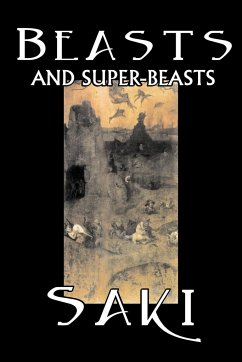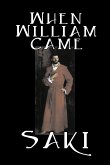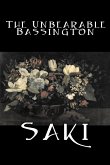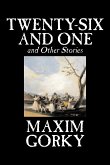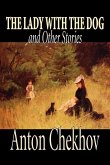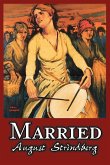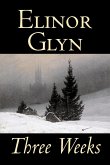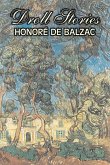"My aunt will be down presently, Mr. Nuttel," said a very self-possessed young lady of fifteen; "in the meantime you must try and put up with me." So begins "The Open Window" one of Saki's most famous stories. Saki, born Hector Hugh Munroe, wrote about characters with, sometimes, a sadistic cruel streak in them. It was his way of commenting on the people of Edwardian times. In doing so, he has sometimes been considered more macabre than Kipling. For instance, in "The Open Window", Mr. Nuttel is sent to the country to recuperate from a nervous breakdown. When he meets the young lady of this tale, she tells him a story about how her uncles died. When the uncles arrive at the house, the delicate Mr. Nuttel runs away in horror. In "The Schartz-Metterklume Method" a woman believes that children should learn history by acting them out, but the event she chooses is rather inappropriate for children. "The Storyteller" is about a young man so irritated by obnoxious children on train that he decides to keep them quiet by telling them a story. Unfortunately, the story does not have a happy ending. . . .

